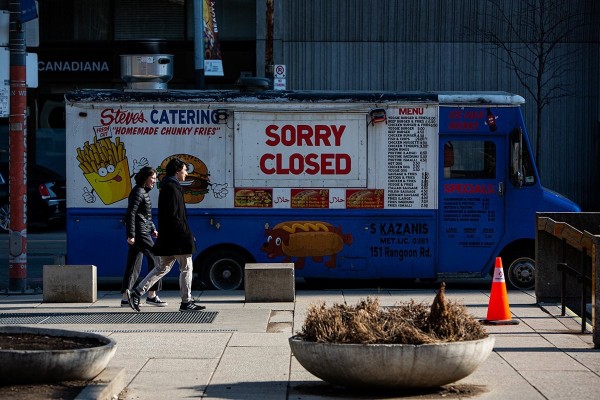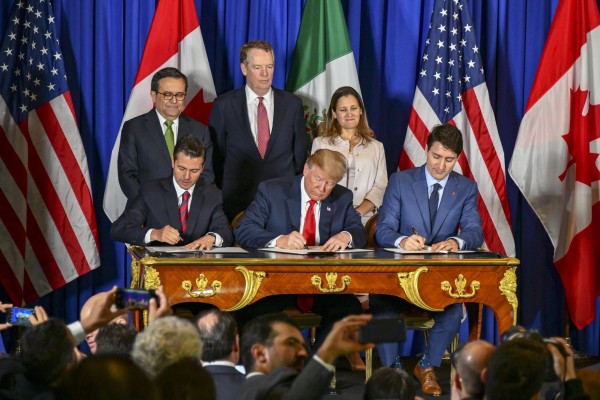The myth of the ‘nanny state’
Today there is ample evidence of a punishing post-nanny state of the kind Margaret Thatcher would have thoroughly approved

Margaret Thatcher served as British prime minister from 1979 to 1990. Photo by Tim Roney.
Among many stories related to austerity and social abandonment that came across my news feed in the last several days, I noticed a Global News headline that read, “Stress builds as deadline to vacate some Halifax homeless encampments inches closer.”
The article dealt with a sadly familiar situation in which people lacking viable housing options who had assembled the minimum conditions of their survival were facing eviction by the authorities. A municipal spokesperson expressed the hope that the people would leave voluntarily but added that “if we do get to the point where we have someone who is refusing to move beyond the notice, we do have the legal authority to remove people.”
Today in Canada, one of the richest countries in the world, encampments of homeless people have become shamefully common. They are filled with people whose grossly inadequate income can’t cover impossible rental costs, which stem from a commodified system of housing provision based on generating profits for developers, investors and speculators. This is only one glaring manifestation of the deepening inequalities and injustices that mark the society we live in.
Those who promote right-wing solutions for societal ills have long argued for minimal state interference with the play of market forces. It has often been suggested that all attempts to constrain unbridled profit-making are just so many barriers to ambition, hard work and prosperity. The sexist term “nanny state” is often pressed into service to make the point.
Margaret Thatcher was an implacable foe of the nanny state and she put her anti-social ideas into effect with devastating and lasting results. While her contention that there’s “no such thing” as society is notorious on the left, it became a rallying cry for those on the right. In an interview with the magazine Woman’s Own in 1987, Thatcher said: “I think we have gone through a period when too many children and people have been given to understand ‘I have a problem, it is the Government’s job to cope with it!’ or ‘I have a problem, I will go and get a grant to cope with it!’ ‘I am homeless, the Government must house me!’ and so they are casting their problems on society and who is society? There is no such thing! There are individual men and women and there are families and no government can do anything except through people and people look to themselves first.”
Thatcher’s views on the mythical obligations of a non-existent entity called “society,” point to considerations of how the power of the state should be exercised.
The role of the state
The first and obvious conclusion to draw from the views Thatcher expressed in this interview is how glaringly selective they were. Although the carceral system and the military are both institutions of the state, she was hardly a prison abolitionist or an opponent of militarism. When workers went on strike and set up picket lines, she didn’t tell their employers that they should learn to deal with their own problems and not expect publicly funded police forces to come to their assistance. When warships needed to be deployed, Thatcher had an extremely robust notion of ‘society’ and a thoroughly interventionist conception of state power.
Right-wing objections to state intervention are typically limited to certain very distinct areas. It is the historically secondary role of the state in providing social programs and services, a role that was expanded considerably in the post-war period, which is deemed unacceptable. Similarly, regulatory measures to protect workers, consumers or the environment are so much ‘red tape,’ impeding entrepreneurial spirit and standing in the way of the business of generating wealth that is supposed to trickle down but never does.
When, however, it comes to upholding and strengthening the legal framework and coercive powers upon which a capitalist society rests, the state is a cherished institution. When exploited countries in the Global South rebel against Western domination, the military power of the state is nothing to be ashamed of. When picket lines need to be smashed or poor racialized communities socially controlled by aggressive police patrols, the state gets a stamp of approval. When the rich need the services of a nanny, a nurturing state is always in big demand.
While right-wing duplicity on the role of the state is rampant, there’s also a good measure of left-wing confusion. All through the neoliberal decades there has been a recurring refrain that the reduced role of the state in social provision and regulation was evidence of the sidelining of its power. In actuality, the neoliberal project was never about weakening the state per se but was aimed at refocusing its activities.
A working class movement in a capitalist society must certainly call for the state to act in the interests of the majority of citizens and to provide a range of public services, always bearing in mind that while it may be compelled by social action to codify workers’ rights, provide social housing and build hospitals, the capitalist state will also bail out banks, serve the interests of developers and allocate vast resources to police, prisons and military power.
Prevailing economic pressures and our capacity to mobilize and resist will influence the extent to which the state brokers reluctant concessions, as opposed to prosecuting its primary role of doing the bidding of the rich and powerful. However, whether the prevailing agenda is relatively conciliatory or sharply confrontational, the exercise of state power is essential in a capitalist society.
Throughout the neoliberal years, the state has cleaned up after the major corporations, greased the wheels of profit making, and injected public money to enable them to weather their crises, deploying armed force whenever the need arose. The state has been as powerful an institution under neoliberalism as it was during the Keynesian years. It remains a force we must reckon with in the present volatile and uncertain period.
State intervention
Today there is ample evidence of a punishing post-nanny state of the kind Margaret Thatcher would have thoroughly approved. Governments have continued with austerity measures typical of the neoliberal approach to economic management. Public health care in Canada is in a deep crisis and has been degraded to the point where only 18 percent of people believe the system is working well.
Here in Ontario, despite union and community resistance, the Doug Ford government is slashing hundreds of millions of dollars from funding for public education. The gutting of social housing and the sweeping commodification of housing provision are standard state policy across the country.
These social cutbacks and regressive directions, which pass as public policy, have all been enacted by the governing institutions of the state. Moreover, the state-brokered concessions to worker’s rights of an earlier period have been substantially weakened. As Leo Panitch, Donald Swartz, Bryan Evans and Carlo Fanelli pointed out in From Consent to Coercion: The Continuing Assault on Labour, “In the first 15 years after 1950, there were only six instances of back-to-work legislation in total; there were 51 such instances in the following decade and a half, with half of these from 1975 to 1979 alone.” Where labour relations are concerned, things haven’t improved in more recent decades.
The instability of global capitalism since the financial crisis of 2008 has shifted but not fundamentally changed the state’s neoliberal direction. As an influential agency that imposes the ruling class agenda on an international scale, the International Monetary Fund has called for an ‘agile’ approach. This means that attacks on workers and the social infrastructure will continue, but that moments of acute crisis may prompt the need for a temporary switch to stimulatory spending.
This tempered class war has gone hand in hand with the sustained effort by central banks to ‘cure inflation’ by driving up interest rates, which undermines the ability of workers and unions to cope with the cost-of-living crisis. The neoliberal state’s deference to the independent decision-making powers of central banks reflected the reorientation of the state even more than the swollen budgets for police and the increased readiness to resort to incarceration as a means of social control.
In this unforgiving period, when the need to fight back decisively and effectively is so pressing, we should have no dangerous illusions that the state has been weakened. It may don its velvet glove occasionally, as in the case, here in Canada, of the introduction of Pharmacare but, make no mistake, its iron fist is as brutal as ever.
John Clarke is a writer and retired organizer for the Ontario Coalition Against Poverty (OCAP). Follow his tweets at @JohnOCAP and blog at johnclarkeblog.com.










